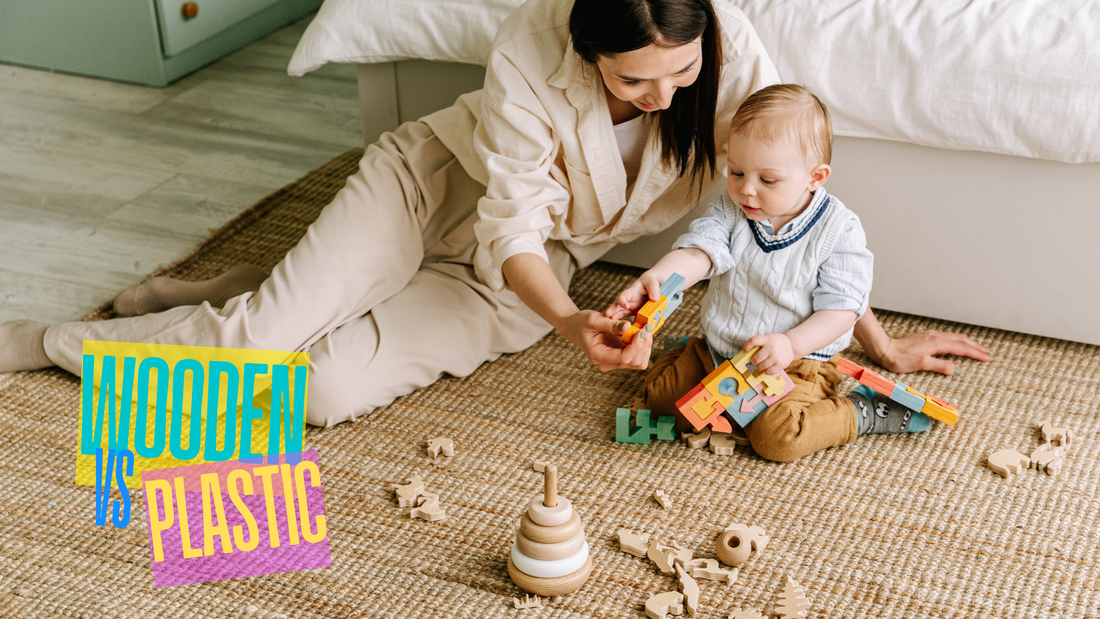Wooden Teethers vs. Plastic Teethers: A Guide for Conscious Parents
As a parent, choosing the best for your baby is always the priority, whether it’s food, care products, or toys. When it comes to teethers, the choice between wooden and plastic can be overwhelming. Both materials have their own benefits and drawbacks. In this blog, we’ll dive into the reasons why wooden teethers are a healthier, eco-friendlier, and safer choice for your little one compared to plastic alternatives.
Why Wooden Teethers Are a Safer Choice:
1. Free From Harmful Chemicals: Unlike plastic teethers, which may contain harmful substances like BPA, phthalates, or PVC, wooden teethers are made from 100% natural materials, ensuring your baby is not exposed to any toxic chemicals.
2. Naturally Antibacterial: Wood has natural antibacterial properties, which means it can resist the growth of harmful bacteria. This makes wooden teethers a cleaner and safer option for your baby during the teething process.
3. Eco-Friendly & Sustainable: Wooden teethers are biodegradable and often made from sustainably sourced wood like beech, neem, or maple. By choosing wooden teethers, you’re also helping reduce the environmental footprint.
4. Durable and Long-Lasting: Wooden teethers are tough and can withstand the wear and tear that comes with teething. Unlike plastic, they don’t crack or break easily, making them a more reliable option.
5. Promotes Sensory Development: The texture and natural feel of wood provide babies with a unique tactile experience, promoting sensory exploration and aiding in the development of motor skills.
Plastic Teethers: What You Should Know
Plastic teethers, while widely available, can pose potential risks:
• Risk of Chemical Exposure: Many plastic teethers contain chemicals like BPA and phthalates, which have been shown to affect hormone development in babies.
• Lack of Durability: While plastic teethers may come in bright colors and fun shapes, they often wear down quickly and may crack, creating a choking hazard.
• Environmental Impact: Plastic teethers contribute to plastic waste, which is harmful to the environment.
The Verdict: Why Wooden Teethers Win
Ultimately, wooden teethers provide a safe, natural, and eco-friendly solution for your baby’s teething needs. They’re not only good for your child but also kinder to the planet. In contrast, plastic teethers may offer more flexibility, but the potential risks associated with chemicals and environmental harm make them a less appealing option.
By choosing wooden teethers, you’re making a conscious choice for your child’s health and well-being while contributing to a healthier planet.

